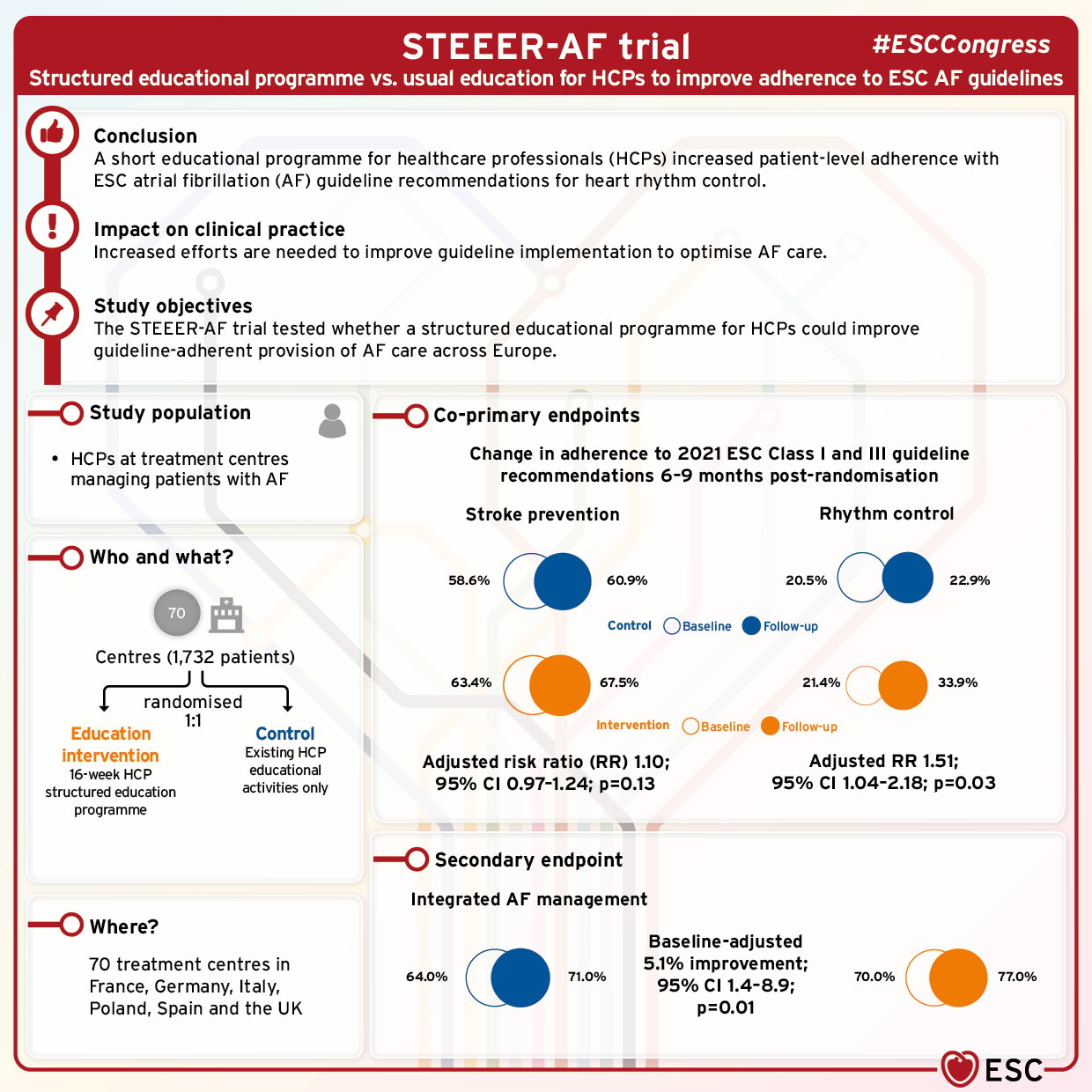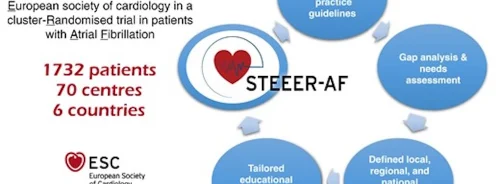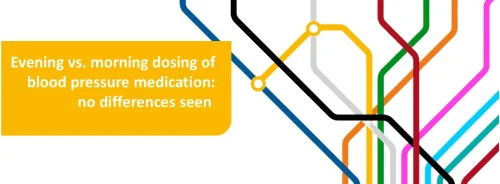Adherence to atrial fibrillation (AF) guideline recommendations in clinical practice across Europe was found to be poor, but a structured educational programme for healthcare professionals significantly improved the implementation of heart rhythm control recommendations, according to research presented in a Hot Line session at the ESC Congress 2024.
Guidelines are designed to help healthcare professionals provide optimal care, but their recommendations are often not fully implemented in clinical practice, with the education of healthcare staff being a key barrier. In STEEER-AF, ESC's first randomised controlled trial, in collaboration with the European Heart Rhythm Association (EHRA) and the ESC Council on Stroke, researchers assessed whether a structured educational programme for healthcare professionals could improve adherence to AF care guidelines across Europe.
STEEER-AF was conducted in France, Germany, Italy, Poland, Spain, and the U.K. Treatment centres were randomised into two groups. In the intervention group, healthcare professionals received a structured education programme over 16 weeks, focusing on stroke prevention, rhythm control, and integrated care, with support from expert local trainers. The programme was developed by ESC Education, EHRA, external content leads, and an independent medical education agency. Healthcare professionals in this group spent an average of 9.2 hours on the online learning platform. In the control group, healthcare professionals continued with their usual educational activities.
The co-primary endpoints were adherence to ESC Class I and III recommendations for stroke prevention and rhythm control, measured at the individual patient level, and re-evaluated 6–9 months after randomisation using objective methods at each centre. A total of 1,732 patients with AF from 70 randomised centres were studied.
Findings showed that adherence to heart rhythm control guidelines was low but improved following a short, targeted educational intervention. No significant improvement in guideline adherence for stroke prevention was observed, with adherence rates changing from 63.4% to 67.5% in the intervention group and from 58.6% to 60.9% in the control group. However, there was a significant 51% improvement in guideline adherence for rhythm control, with adherence increasing from 21.4% to 33.9% in the intervention group and from 20.5% to 22.9% in the control group.
There was also a significant improvement in a patient-reported secondary outcome assessing eight domains of integrated AF management, which improved to 77.0% with the intervention compared to 71.0% in the control group.

The STEEER-AF trial shows that targeted education for healthcare professionals can improve patient-level guideline adherence, particularly in areas with significant implementation gaps, as demonstrated for rhythm control in AF. The findings highlight the need for a comprehensive re-evaluation of how guidelines are constructed, disseminated, and implemented. As a result of STEEER-AF, the new 2024 ESC Guidelines for the management of AF now include various approaches to enhance 'AF-CARE,' with new patient pathways designed to make implementing recommendations more straightforward and consistent. In addition, a patient version of the 2024 AF Guidelines has also been launched to empower patients and foster a shared-care approach with multidisciplinary healthcare teams.
Source: ESC Congress 2024
Image Credit: Europace, ESC Congress 2024







